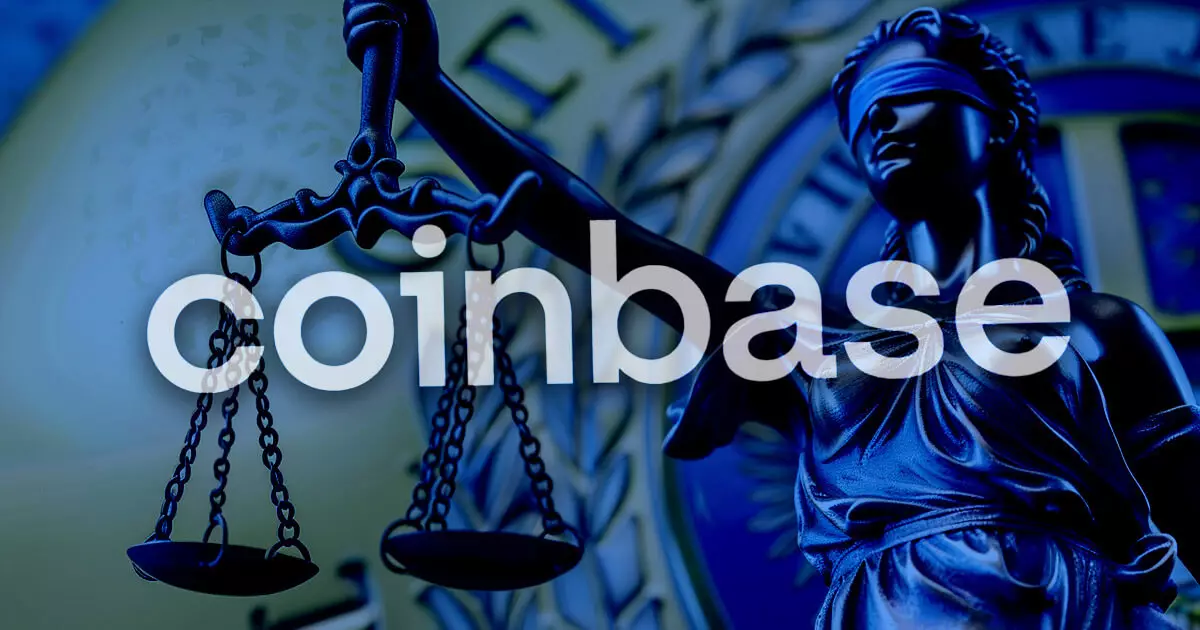Coinbase’s recent legal maneuver against the U.S. Securities and Exchange Commission (SEC) illuminates a significant clash between cryptocurrency platforms and regulatory bodies. The lawsuit, rooted in a demand for internal SEC documents, seeks to question the agency’s opaque enforcement strategies regarding the burgeoning crypto industry. Coinbase’s initiative feels especially timely as the SEC’s regulatory actions have increasingly come under scrutiny for their lack of clarity and consistency.
Central to this dispute is the involvement of History Associates, a consultancy firm that Coinbase engaged to probe into the SEC’s crypto regulatory framework. Following a Freedom of Information Act (FOIA) request, which aims to promote governmental transparency, the SEC initially denied access to certain documents, citing the FOIA Exemption 7(A). This particular exemption is designed to protect confidential records related to ongoing law enforcement activities—a claim that has led to further complications.
Although the SEC eventually indicated that this exemption might not apply in its entirety, it has maintained that an exhaustive review of the requested documents would necessitate a three-year delay. This prolonged timeline not only frustrates Coinbase but also raises questions about the SEC’s commitment to transparency and accountability as it pertains to its interactions with the evolving cryptocurrency sphere.
Faced with these obstacles, Coinbase is adopting a two-pronged strategy. This plan focuses on expediting the review of internal SEC communications related to cryptocurrency while pushing back the examination of third-party records for later consideration. This dual approach signifies Coinbase’s determination to clarify the ambiguous regulatory landscape, particularly concerning how various tokens are classified under securities laws. The absence of defined criteria for token classification has left many companies, including Coinbase, operating in a state of uncertainty, hampering their ability to innovate and grow.
The backdrop of this legal battle also involves significant events, including Ethereum’s transition from a proof-of-work to a proof-of-stake consensus mechanism. The implications of this transition are vast and complex, further highlighting the necessity for clear regulatory guidelines. In July 2023, History Associates inquired about this shift, underscoring the industry’s need for clarity.
Moreover, historical cases such as the SEC’s actions against Zachary Coburn, the mastermind behind the decentralized exchange EtherDelta, echo the challenges facing crypto players. Coburn’s settlement over operating an unregistered exchange and the substantial penalties incurred serve as a stark reminder of the potential repercussions of ambiguous regulatory parameters.
Ultimately, Coinbase’s ongoing lawsuit represents a pivotal moment for the cryptocurrency industry. As the case unfolds, it could set significant precedents that shape the future of crypto regulation. The efforts to challenge what is perceived as regulatory overreach are vital not only for Coinbase but for numerous other companies navigating this complex landscape. This legal battle emphasizes the critical need for clarity and guidance as the intersection of technology and regulation continues to evolve. As stakeholders await the resolution of this case, the broader conversation surrounding the rules governing digital currencies is one that requires urgent attention and action.

